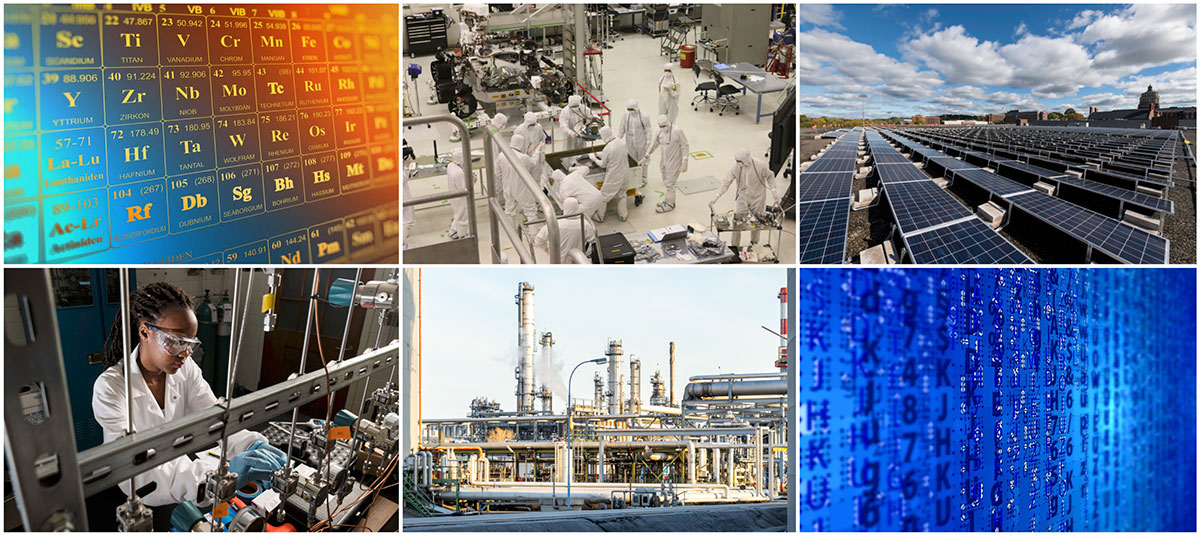What Do Chemical Engineers Do?

Chemical engineers work all over the globe to design and implement sustainable processes and materials that are integral for modern society.
In the Department of Chemical Engineering at University of Rochester, our students gain expertise that will allow them to go on to create technologies to:
- Safely and efficiently process and transport oil and natural gas
- Transform climate-damaging carbon dioxide into useful chemicals and fuels
- Create polymers for plastics, rubber, batteries, biomedical devices, and a myriad of other items that are integral to everyday life
- Simulate blood flow through arteries to predict and prevent strokes
- Develop safer, more powerful batteries to boost the mileage of electric cars
Modern society would not be possible without chemical engineering.
Where do Chemical Engineers Work?
A degree in chemical engineering is a passport to an exciting and rewarding career. The rigorous coursework focuses on skills and approaches to solving problems that can be applied universally.
Chemical engineering is central to all manufacturing, from the traditional oil and gas industries to biotechnology, pharmaceuticals, food production, electronic materials and device fabrication, and environmental engineering. In many cases, chemical engineers make important decisions that influence the safety, sustainability, and economics of process design and manufacturing.
Chemical engineers can also go into diverse fields that are outside of engineering, including consulting, law, medicine, and finance.
Our graduates work at a wide variety of companies including:
- 3M
- Apple
- Bristol Myers Squibb
- Brookfield Instruments
- Chevron
- Doosan Fuel Cells
- Dow Chemical
- Dupont
- ExxonMobil
- Henkel
- Intel
- Javlyn Process Systems
- Lockheed-Martin
- Merck
- Mitsui Plastics
- Pall Corporation
- Procter & Gamble
- Regeneron Pharmaceuticals
- SPX Flow
What is a Typical Chemical Engineering Salary?
The median annual wage for chemical engineers was $121,860 in May 2024, according to the U.S. Bureau of Labor Statistics, 45 percent higher than the median annual wage for chemists of $84,150.
The Department of Chemical Engineering at the University of Rochester can help you become a successful chemical engineer and achieve the career of your dreams through coursework, innovative research, and professional connections.
